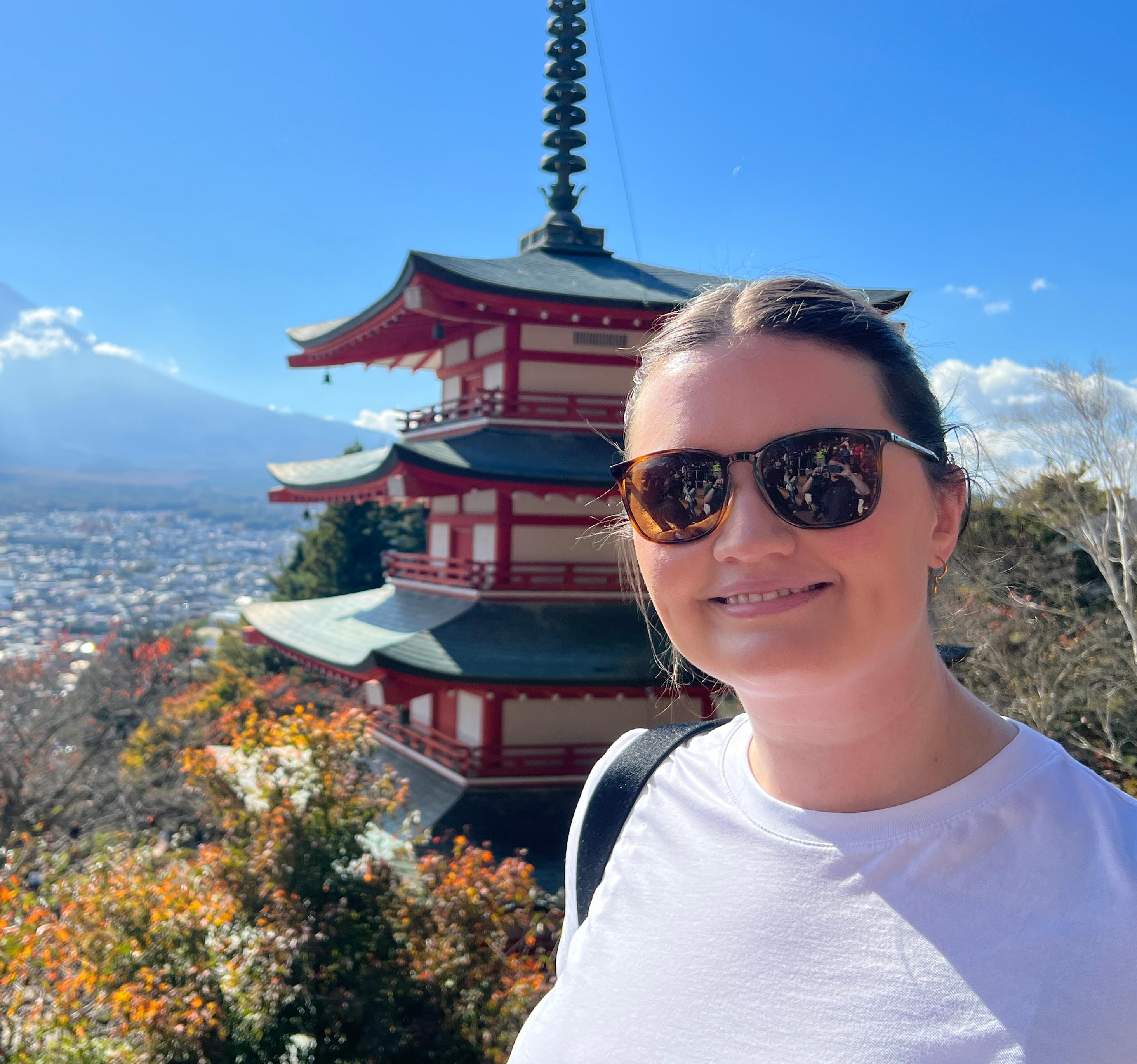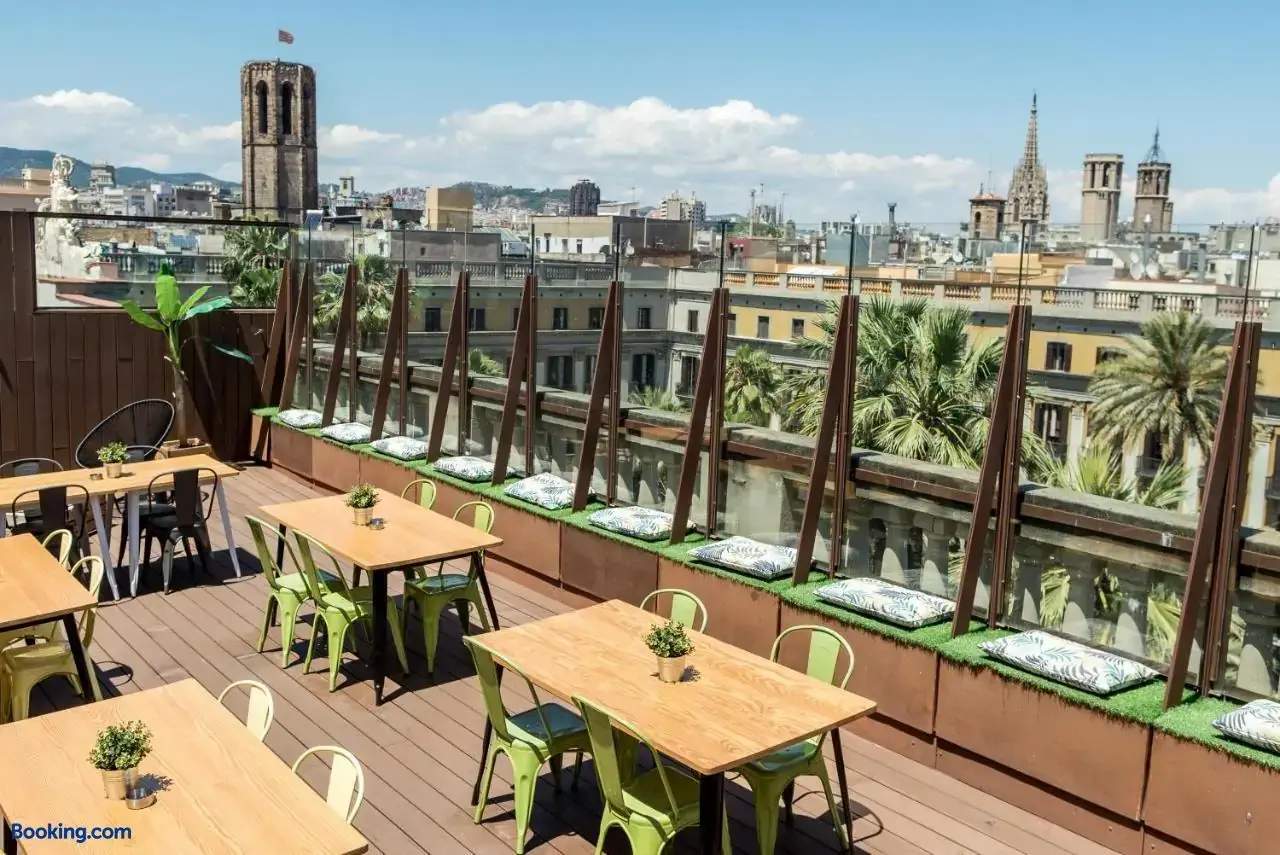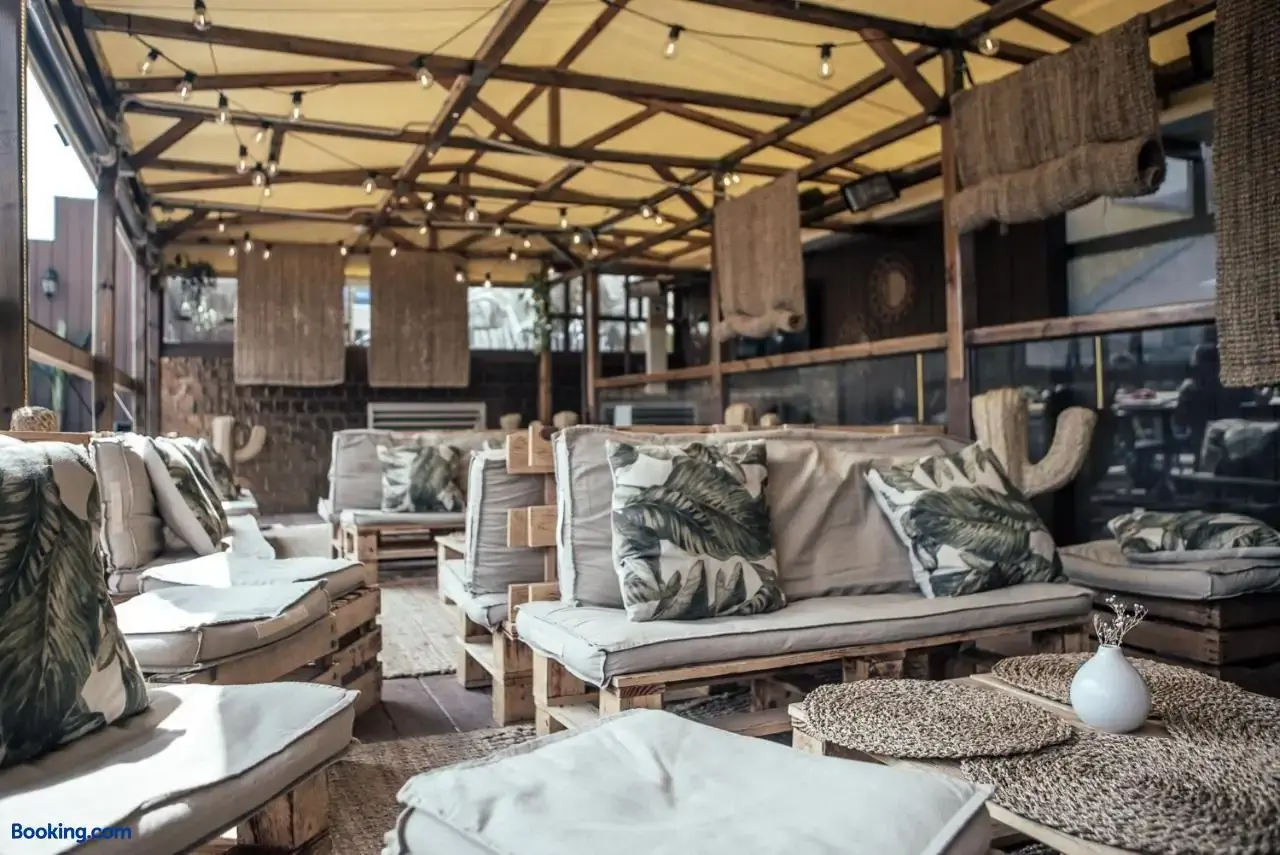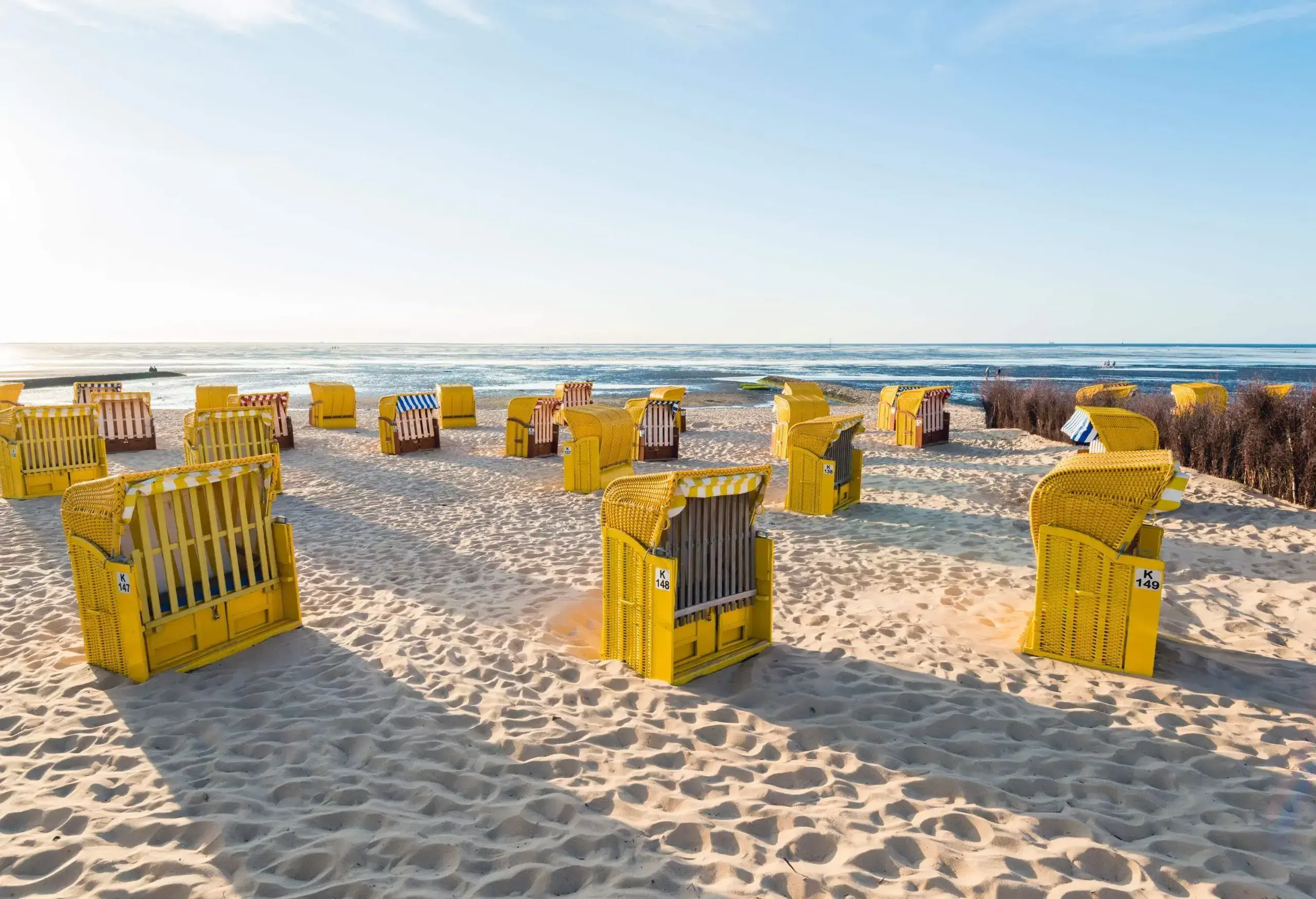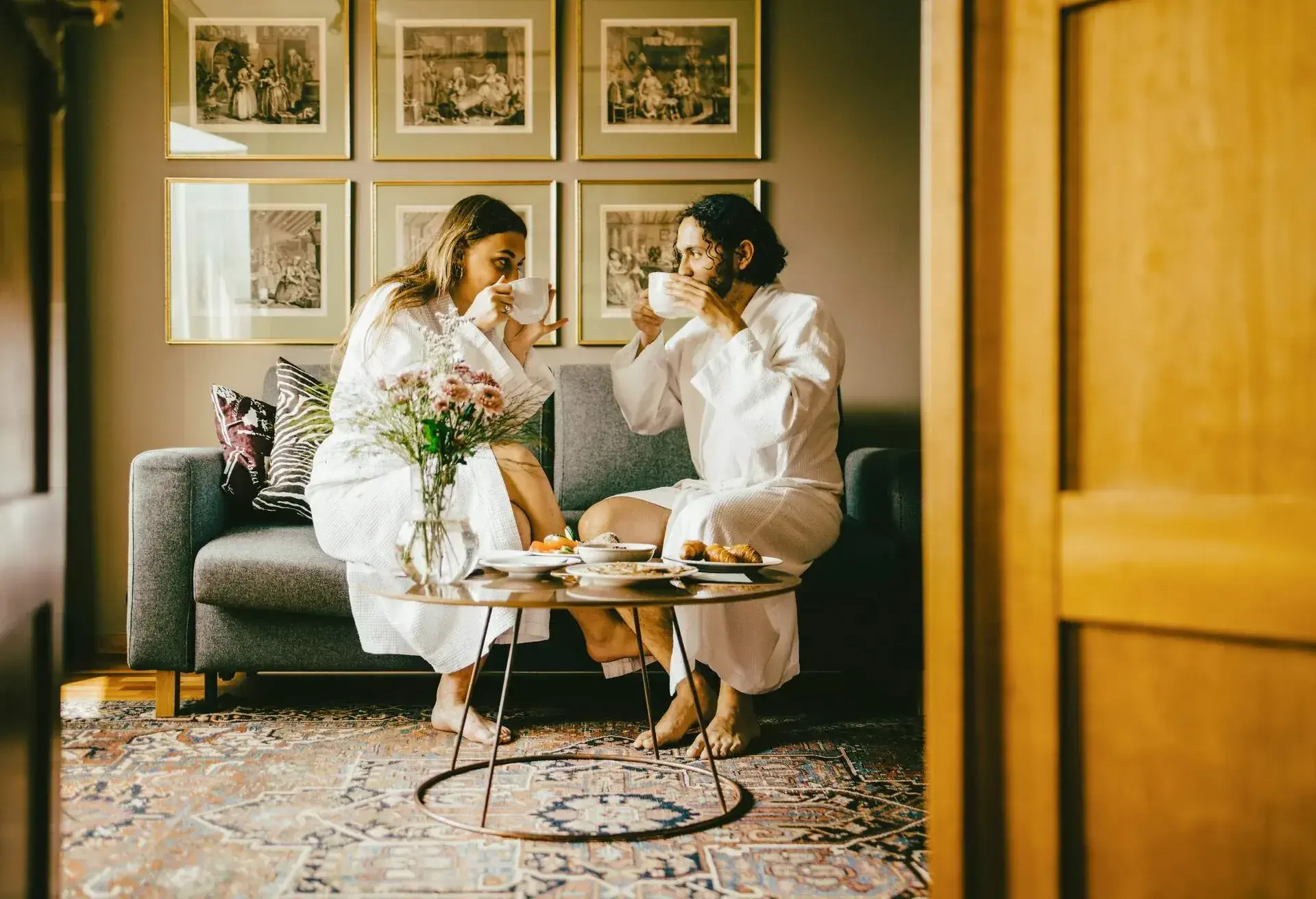I’ve stayed in more hostels than I can count, and most of them have been different from one another. Once, I stayed in a hostel in Quito – for $5 (about £4) a night, got you a bed in a dorm-style room and a giant silver bowl of rum and coke (plus some cockroaches for roommates).
On the other end of the spectrum, the design hostel I stayed at in Copenhagen rivalled some of the finest hotels I’ve been to. But all good hostels have one thing in common: they’re fun and help create great memories.
So, what is a hostel? A hostel is just like a hotel, except you probably have to share a bathroom with other guests. For the lowest rates, you can also opt to share a room.
Here, I’ve rounded up all you need to know about hostels, including how to pick the right one for you.
What is a hostel?
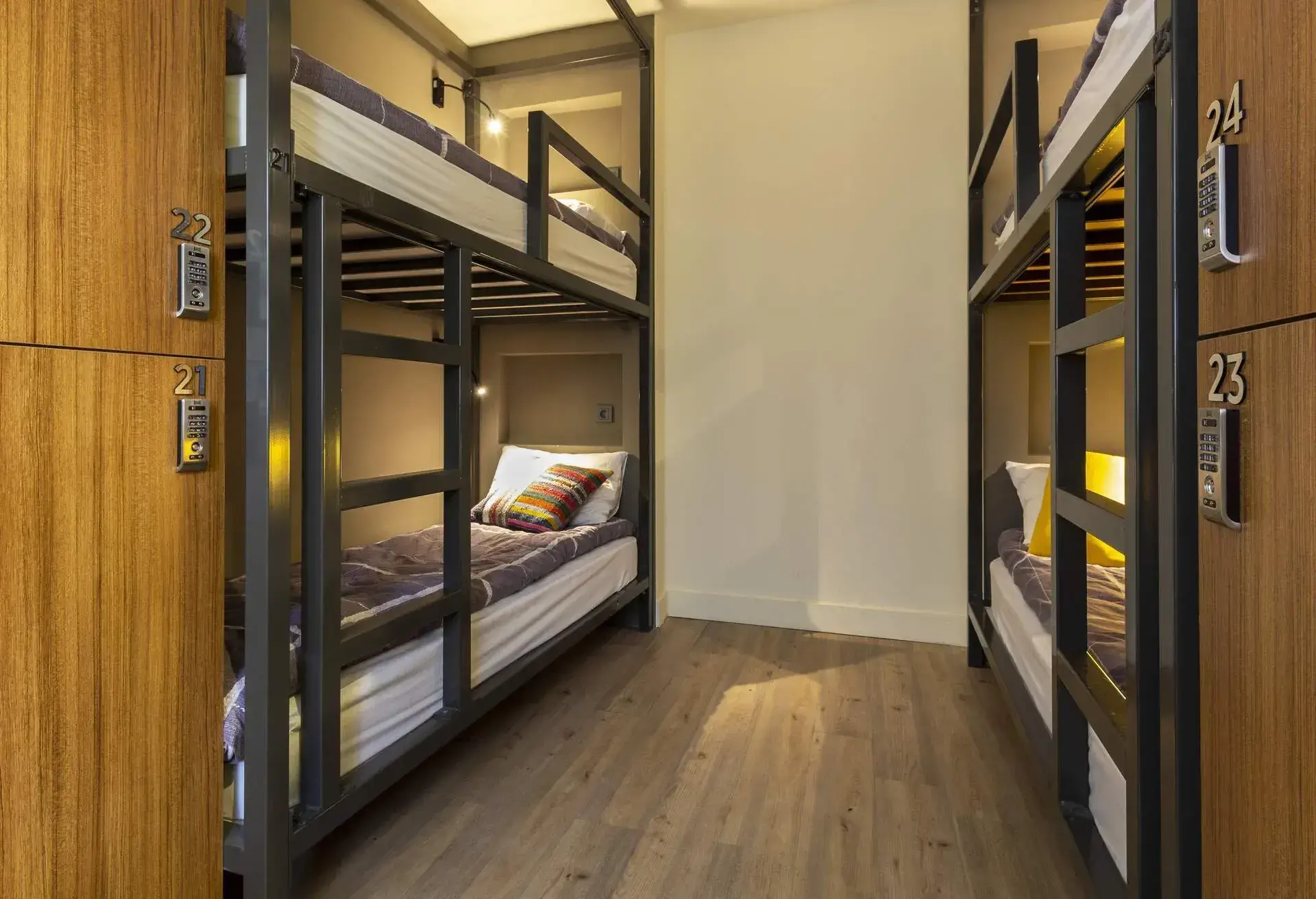
Hostels have some amenities and almost always have common areas like a kitchen and a lounge, although you can expect to find fewer amenities at a hostel than you would at a hotel.
Private rooms in a hostel cost more than dorm-style rooms, although they’re still cheaper than 3- and 4-star hotels. Most hostels provide bedding and a locker to hold your bags or valuables, but some may charge a fee for this. Just like a hotel, hostels provide a key card or code to access your room.
As long as you can do without some of the amenities you might find at a hotel like a pool and a gym, hostels are a great option for those looking to save money and meet other like-minded people.
Why are hostels so cheap?
Hostels are cheap largely due to the fact that you share a room and bathroom with other travellers. Staff overhead costs are lower too – for example, fewer cleaning staff or services like a concierge.
For this reason, if money’s tight and/or you’d rather spend your money on experiences, staying at a hostel is a great idea. Just keep in mind that, more and more, hostels offer private rooms to guests, and these can be relatively expensive. If you want to save as much money as possible, opt for a dorm-style room.
What are the key features of hostels?
Some key features of hostels include:
- Dorm-style rooms: Dorm rooms can have anything from four beds (usually two bunk beds) to six, eight or ten beds (or even more). These types of rooms are almost always the cheapest. Note that there are usually single-sex and mixed dorms to choose from.
- Private rooms: Most hostels also have private rooms, which are a more expensive option. These can feel similar to motel rooms.
- Shared bathrooms: You generally share a bathroom with other guests.
- Communal areas: Expect to find a large kitchen and a lounge area at most hostels.
A sense of community

True story: I’ve made multiple lifelong friends in hostels. Unlike hotels, hostels encourage you to hang out in their communal spaces and meet people.
As soon as you walk into a hostel, you can feel the difference — there are usually people socialising in the lounge or entryway, preparing meals in the kitchen, and making plans to go out and explore together. For people travelling solo or those who love making new friends when they go places, hostels are the best option.
I’ve met people from all over the world when I’ve stayed in hostels, cooked in kitchens with people from a dozen different countries and traded funny travel stories over endless glasses of wine. I’ve bonded with people of all different cultures, backgrounds, ethnicities and religions. Truly, some of my most memorable travel experiences have happened in hostels.
Services and amenities
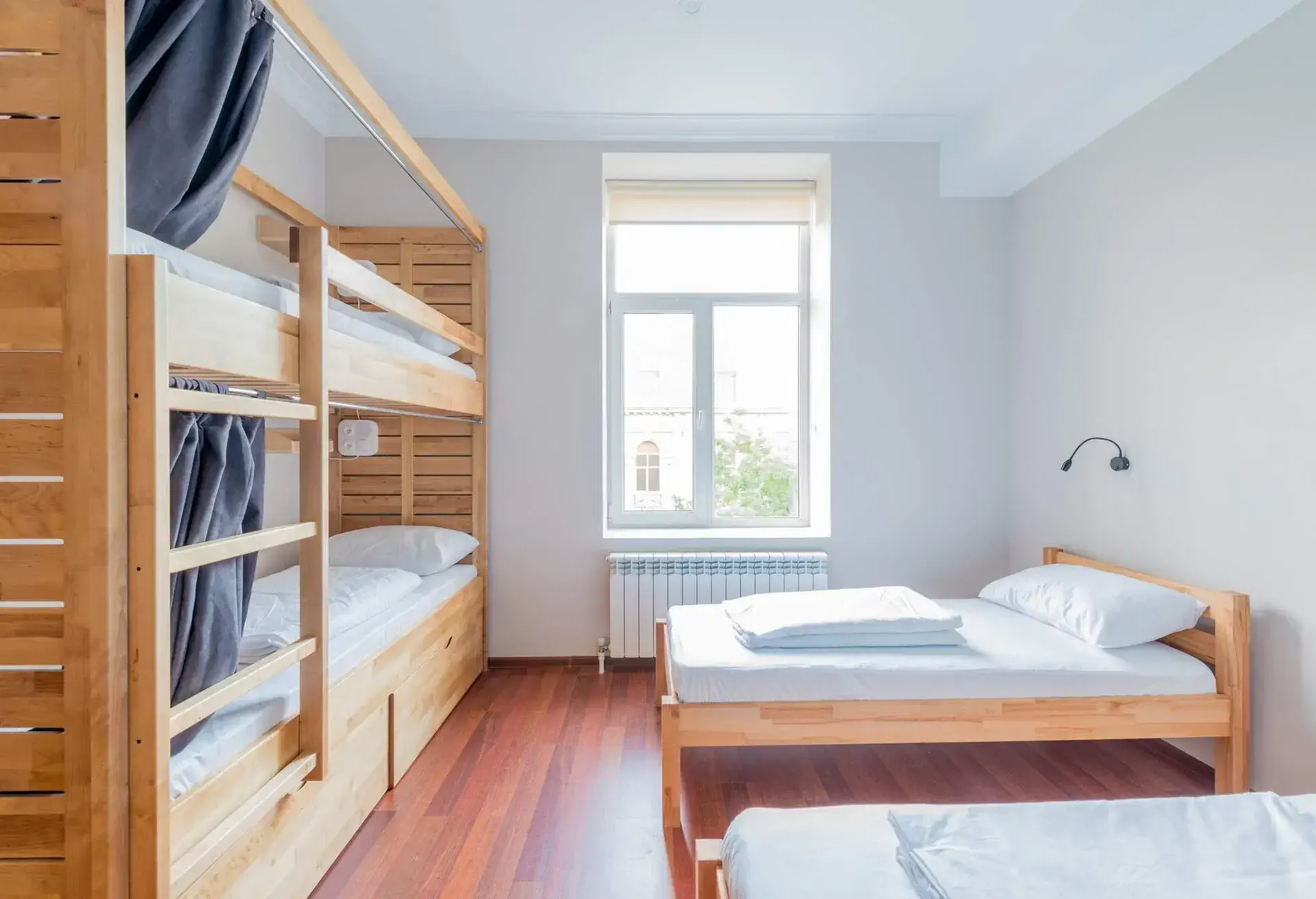
Generally, hostels offer fewer services and amenities than a hotel. This doesn’t mean they skimp on providing thoughtful extras for travellers, though. At many hostels, you’ll find:
- Laundry rooms
- Luggage storage
- Lockers for your private belongings
- Communal spaces for socialising, like a lounge area, lobby or library.
- A kitchen guests can use.
- Some hostels may offer a simple complimentary breakfast. For example, coffee and some toast or fruit.
- Free WiFi
- Some hostels have their own low-cost restaurants and bars on-site.
In terms of in-room amenities, you probably won’t find a coffee maker, iron, toiletries, telephones, TVs or other luxuries that you’d find in a hotel room. Most hostel rooms are bare-bones, with just a bed. Rather, you can usually find these amenities in hostel common areas. For instance, there’s likely a TV in the lounge area, a telephone available for public use, and an iron and ironing board that you can use for a fee.
Are hostels safe?
Hostels are no more or less safe than hotels; it all depends on the location you’re in. Of course, if you’re staying in a shared room with people you don’t know, there’s always an increased risk of theft. But that’s why hostels offer lockers, so you can store your valuables at night. Many hostels also have 24-hour receptions, just like hotels.
A good way that you can ensure that a hostel is up to your standards is to utilise KAYAK’s hotel reviews and review scores. This way, you can understand what the experience will be like before you book. Reviews like these help provide peace of mind that you’re staying in a trustworthy place with ample security measures.
Take some time to read reviews and look at each hostel’s score, so you can be sure you have a comprehensive impression of each place before booking.
Benefits of hostels

There are so many benefits to staying in a hostel. I’m a bit of an introvert and sometimes struggle to meet people when I travel, so for me, one of the biggest benefits of staying in a hostel is the chance to interact with other travellers. I love meeting people from different cultures, and hostels are always brimming with travellers from all over the world. I’ve met tons of people in hostels that I never would have had I opted to stay in a hotel.
Another benefit of hostels is the price. There have been many times in my life when I’ve been on a strict budget but still wanted to explore new places, and hostels have been a godsend in those cases. For those of us who don’t have a lot of money to travel, staying in a hostel can mean the difference between going totally broke and being able to stay under budget. I’ve gotten to travel longer and cheaper by booking hostels, and it’s always been worth any sacrifices I have had to make (like sleeping in a room with strangers or not having a TV in my room).
There are lots of other benefits of hostels. You’ll enjoy access to free WiFi and generally friendly staff who are passionate about giving travellers recommendations. Most hostels organise weekly or even nightly events, so there’s always something fun going on. But for me, the best part is saving money and meeting people from all over the globe.
Another big benefit is location. Unless you book an a typical adventure hostel (more on this below), hostels are often based in the hustle and bustle of the city, town or village you’re staying in, meaning your steps from the action. As well as being convenient, this also means you don’t have to spend money on public transport to get to the popular sites on the area.
The flexibility hostels offer can also be a major plus point. Most hostels have flexible check-in and check out times, helping travellers to arrive and leave when they need to. On the flexibility theme, most also offer luggage storage where needed.
Hostel vs. hotel: what are the differences?
Below are the basics of what differentiates a hostel and a hotel.
| Hostel | Hotel |
|---|---|
| Shared dorm lodging* | Private lodging |
| Cheap rates | Rates vary – but generally more expensive |
| Social communal areas | Private amenities and common areas |
| Shared bathrooms | Private bathroom per room |
| Few staff members | A larger number of staff |
| Kitchen access where you can prepare food yourself | No kitchen access. Room service or à la carte dining common |
*With the exception of a private room
My tips for selecting the right hostel
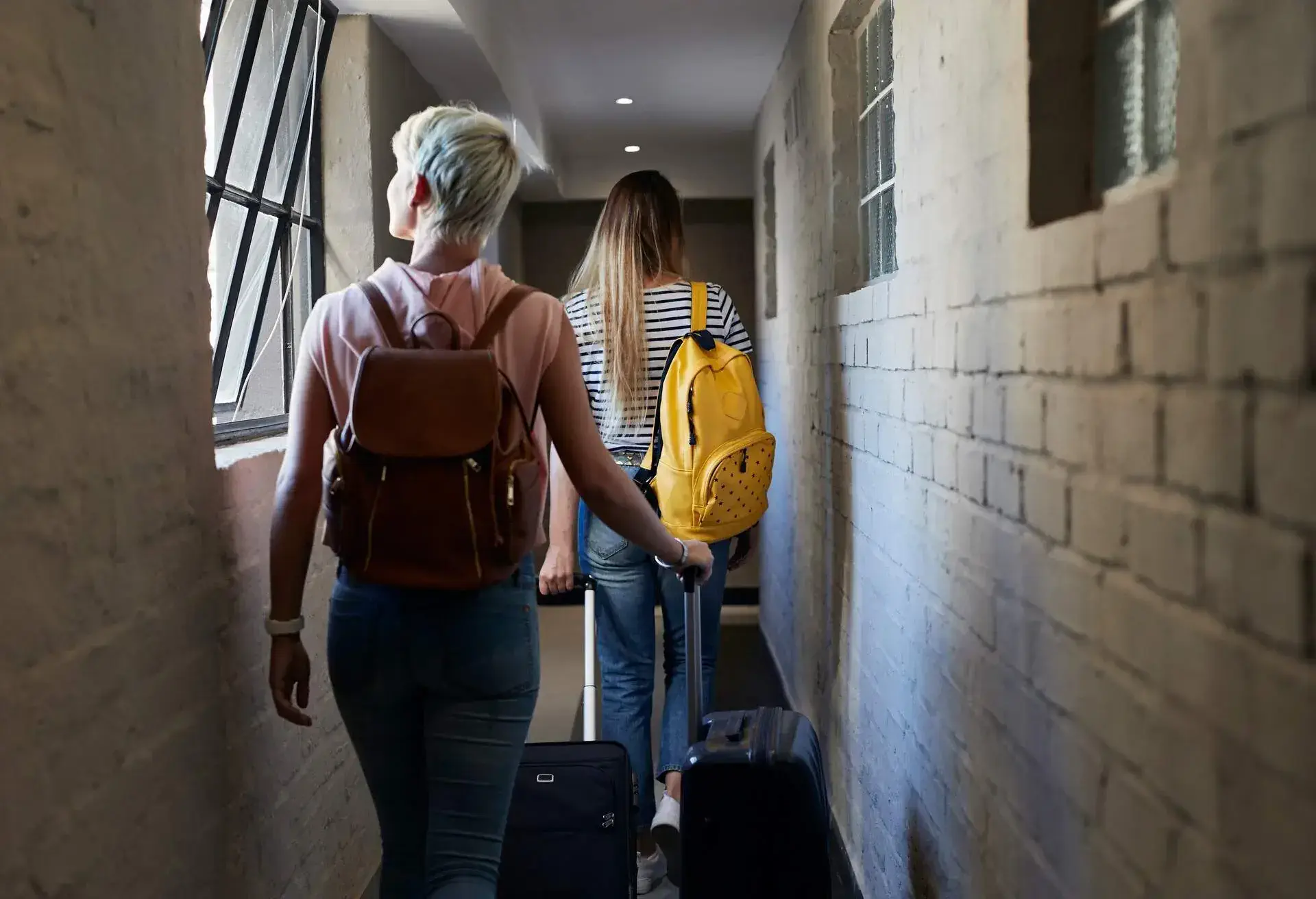
Not all hostels are created equal. Some are truly budget-friendly, with cheap dorm rooms and little to no amenities. Others are considered ‘design’ or ‘luxury’ hostels, which more closely resemble boutique hotels. And there are all kinds of hostels in between.
My advice is to decide which type of hostel you want to stay in, so you don’t end up blowing your budget or staying somewhere that’s less upscale than you expected. If you’re travelling on a strict budget, seek out a hostel that has more dorm rooms than private rooms and doesn’t come with fancy ‘extras’. If, on the other hand, you want to stay somewhere a bit nicer, you can search for ‘luxury hostels’ in any given destination.
Let’s look at a few different types of hostels.
Boutique hostels
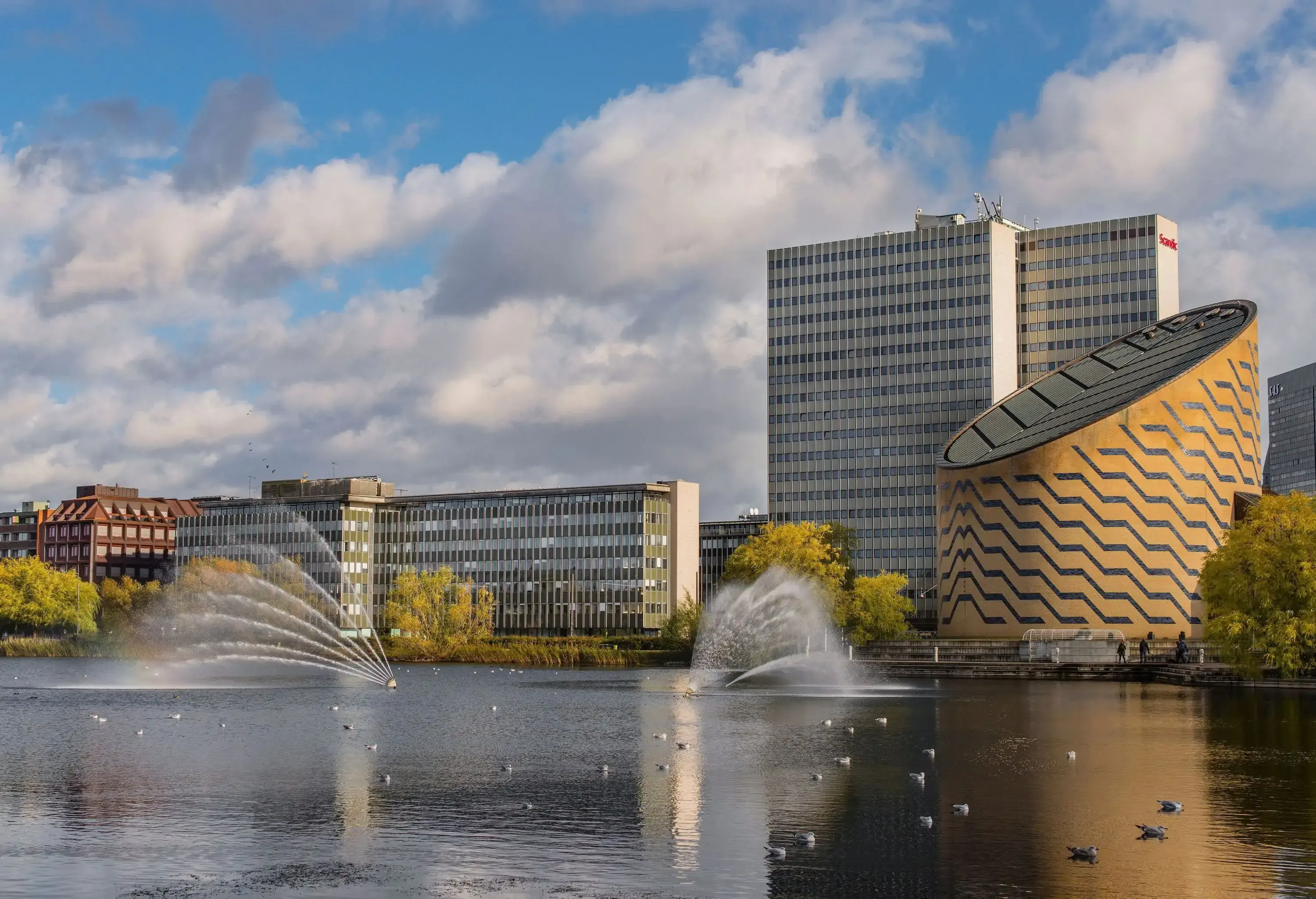
This is the most luxurious type of hostel, and the price will sometimes reflect this. Although they are mostly still cheaper than a 3-star hotel. Boutique hostels are usually decorated with a modern, almost luxury finish and are very well cared for. You may have better-than-basic soaps or shower gels in the shared bathrooms, pools, and outdoor places to enjoy. The Steel House Copenhagen is a great example.
Party hostels
If you want to get social and nights out are on your agenda, a party hostel could be the place for you. This type of hostel focuses heavily on partying, be it hosting pub crawls or social events in the common spaces until the early hours.
These are often heavy on the alcohol, so think carefully about whether this is the right vibe for you given you’ll likely be sharing a room with some tipsy people! If this does sound appealling, head to the Kabul Party Hostel for your next trip to Barcelona.
Adventure hostels
These hostels are usually off the beaten track – perhaps up a mountain or in the middle of a forest. They’re always away from urban centres, and tend to attract outdoorsy people who love to do sporty activities like hiking or climbing. If you’re one of those people, they’re a great place to meet like-minded folk. The Grindelwald Hostel in Switzerland is a great option.
Budget hostels
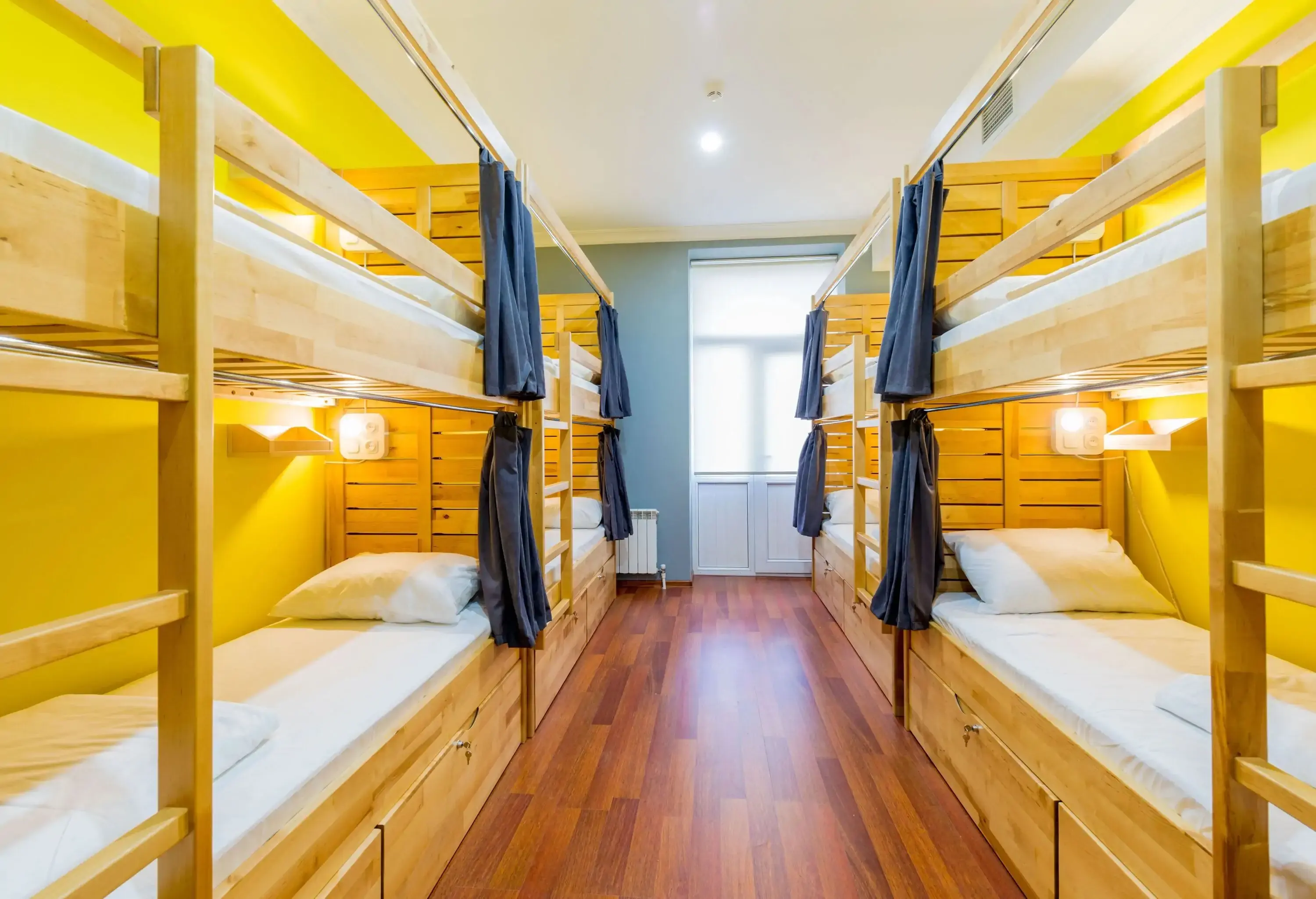
Budget hostels are the perfect accommodation for those on a tight budget. Or people looking to make their money go further so they can travel longer, which has been my approach in the past. As you’d expect, this hostel type is no frills, but you still have all the basics, like your own bed, access to a shared bathroom and almost always a shared kitchen. While they aren’t glamorous places, budget hostels are still clean and comfortable, contrary to what some may say. Just check the location and reviews before booking. Equity Point in Budapest is the perfect example.
What to pack when staying in a hostel
Your packing list for a hostel stay will be slightly different to that for a hotel. After all, you’re probably sharing a room with strangers and sharing a bathroom with them too! Here’s my essential packing list:
- Flip flops for the shower
- Earplugs or noise-cancelling headphones if you’re a light sleeper
- Sleeping eye mask if your room gets light in the mornings
- A plug with multiple USB outlets (ideally a universal travel adaptor too) so you can charge multiple items from one plug socket
- Padlock for your locker
- Quick-drying (microfibre) towel for showering
- A foldable wash bag with a hook to hang in the shower
- A power bank in case there are issues with the plugs
How to book a hostel on KAYAK
To find all the hostels that are available in the destination you are looking for, look for the ‘Type of stay’ filter on the search result page and choose ‘hostel’. After that, the KAYAK Review Score, which is based on user reviews, will help you make the best decision.
Want to be in the middle of all the action? The KAYAK heat map will show you which accommodations are near restaurants, sightseeing, nightlife and shopping. Remember, if you want to stay in a private double or twin room, be sure to select this room type when making your booking.
If you enjoyed this, you might also enjoy this article on the best cheap holiday destinations.
Some of my favourite cities to stay in a hostel
Some of the most exciting cities to stay in a hostel include London, Edinburgh, Chicago, Amsterdam and Dublin. These places are known for their buzzworthy hostels that range from cool boutique-style accommodation to luxury hostels.
Hostel FAQs
The majority of hostels prohibit guests under the age of 18 from staying in dorm rooms, although private rooms are usually exempt from this restriction. In some places, you may encounter a 21-and-under limit. In others, the age limit may be 16.
The aim of a hostel is to offer affordable accommodation and give travellers the opportunity to meet other people. These could be likeminded people, or it could provide the chance to meet others from different walks of life and learn from them.
You won’t be able to book a dorm room if you’re staying at a hostel with children. But most hostels do welcome children as long as you book a private room. Some party-centric hostels may only take guests who are over the age of 18.
Yes, there are pet-friendly hostels. Expect to pay an additional fee if you opt to bring your pup to a hostel, and you likely won’t be able to stay in a dorm room (you’ll have to stay in a private room instead).
No. Most hostels provide clean sheets, a duvet and a pillow as part of the room rate, so you don’t need to worry about bringing your own bedding or sleeping bag. Some hostels on the more affordable side of the spectrum may require guests to ‘hire’ their bedding for the night for a small fee.
Most hostels provide towels, although many might require you to place a deposit or borrow a towel for a fee. In general, you’re better off bringing your own towel to a hostel.
Bathrooms are almost always shared in a hostel, even if you have a private room. Some private rooms in hostels can have private bathrooms – it’s worth checking before you book if this is important to you.



